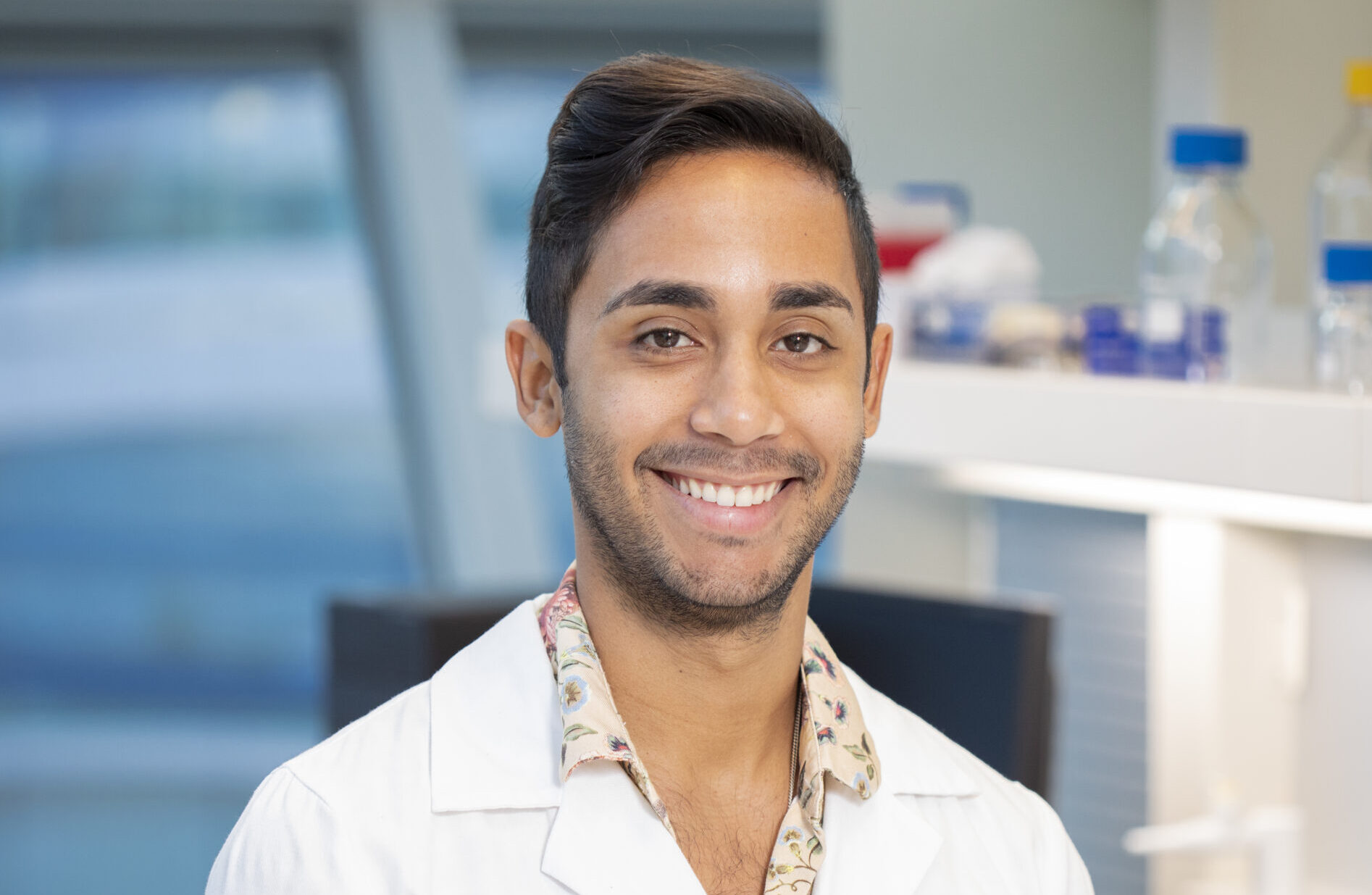Graduate student spotlight: Exploring biomarkers to improve pancreatic cancer detection and diagnosis
February 14, 2022

Throughout the year, we highlight Van Andel Institute Graduate School’s doctoral students. This month, we’re featuring Alfredo Reyes Oliveras, a Ph.D. student in the lab of Dr. Brian Haab. Alfredo studies possible markers in blood or tissue that could help scientists detect, diagnose and better understand pancreatic cancer.
How would you describe your area of study to someone without a scientific background?
My area of study focuses on finding possible biomarkers — molecules expressed only in pancreatic cancer patients — in blood or tissue that could help us detect, diagnose and understand better the disease.
What do you want to do with your degree?
Once I obtain my degree, I want to be involved in translational research, where I can apply the skills I have learned in grad school towards a more direct impact on human health.
What is your primary motivation for persevering through graduate school?
I consider myself a very curious, resilient and ambitious person. These qualities help me persevere and thrive during dark days when experiments are not going as planned.
What accomplishment (academic or other) are you most proud of?
I feel very proud to be the first member of my family to go to grad school.
Why did you choose Van Andel Institute Graduate School?
I chose Van Andel Institute Graduate School because I was looking for a smaller institution with a lot to offer. VAI has appropriately sized classes, problem-based learning coursework and a very specialized focus on research.
Did you take time off before starting your Ph.D. degree or come directly from an undergraduate or master’s degree program?
I did not take time off after my undergraduate degree. I completed a dual degree in chemistry and biology that took me six years. After that, I applied to grad school and came directly to Grand Rapids, Michigan.
How has your previous coursework contributed to your breadth of knowledge?
I would say that doing a dual degree in chemistry and biology came in handy in grad school. Most of the coursework covered during the first year of grad school I had learned during my undergrad years as a biology major. My chemistry degree came in handy in regard to the benchwork, where many assays, techniques and instrumentations are based on chemical approaches.
Do you think there is value in networking with other graduate students in non-related fields?
I consider myself a social butterfly, so I think networking in any aspect has value. You never know who you will encounter in the future. Having connections with people in different fields can help you open doors you thought you could not reach.
Did your past experiences in life or education help prepare you for graduate school, or did you have to develop different strategies to succeed?
Every experience I’ve had has helped me prepare for a challenge like grad school. I have been interested in science since I was young. My parents always supported me in doing science fairs in school, which led me to enroll in a specialized science and math school in Puerto Rico. I also participated in undergraduate research, science clubs, internships, and the MARC program at University of Puerto Rico at Mayagüez, which provides honors students with research-related activities and a specialized science curriculum. All these experiences built my curiosity for science.
Interested in Van Andel Institute Graduate School? Learn more at vaigs.vai.org and read previous student spotlights here. Read more about the M.D./Ph.D. program here.